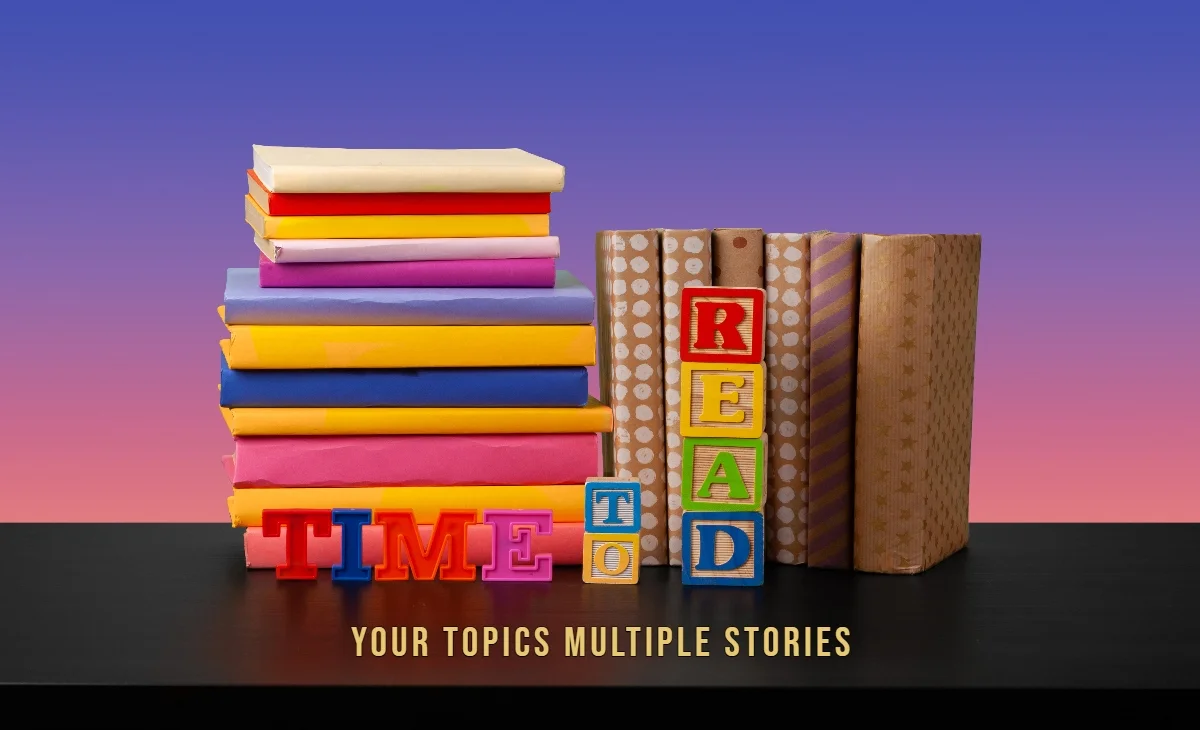Introduction to Your Topics
your topics | multiple stories The concept of “your topics” pertains to a broad spectrum of themes and subjects that resonate with various audiences. These topics can encompass everything from personal development and environmental issues to technological advancements and cultural phenomena. In today’s interconnected world, where information is abundant but often fragmented, the importance of understanding these topics cannot be overstated. They serve as the foundation for discussions that shape opinions, influence decisions, and ultimately drive change.
One powerful way to explore and communicate these topics is through storytelling. Multiple stories can serve as powerful vehicles for conveying complex ideas in a relatable manner. By framing discussions around narratives, we can illuminate different perspectives, highlight emotional connections, and foster a deeper engagement with the subject matter. Storytelling, therefore, becomes not just a medium for entertainment but a significant tool for education and connection in an era overloaded with data.
As we delve into the upcoming sections of this blog post, we invite readers to consider how stories related to your topics can uncover insights that might otherwise remain hidden. Each narrative sheds light on various facets of these subjects, providing readers with a richer understanding. Whether through personal anecdotes, historical accounts, or speculative tales, the multifaceted nature of storytelling allows for a comprehensive exploration of ideas and encourages a dialogue that is both reflective and progressive.
We embark on this journey to illustrate how diverse narratives can transform our understanding of critical themes. By examining these multiple stories, readers will not only engage with the core concepts but also find inspiration and motivation in the tales that speak to them most. Entering this world of storytelling promises to enrich our comprehension and appreciation of the significant topics that shape our lives.
Diverse Perspectives: Unfolding Multiple Stories
Understanding ‘your topics’ demands an exploration of the myriad perspectives that shape our narratives. Each individual carries a unique background, cultural history, and set of experiences, all of which influence how they interpret and tell their stories. By delving into these varying viewpoints, we can appreciate the breadth of interpretations and meanings that ‘your topics’ encompass.
For instance, let us consider the theme of resilience within ‘your topics.’ In one culture, resilience may be illustrated through communal support during crises, where collective strength is emphasized. In contrast, another narrative might focus on individual perseverance, spotlighting the personal journey of overcoming adversity. Such differences can arise from social structures, traditions, and values that characterize each culture, yielding diverse tales surrounding a familiar theme.
Moreover, different social groups may experience ‘your topics’ distinctively, influenced by factors such as socioeconomic status or ethnicity. For example, in discussions related to health and wellness, a story from a marginalized community might reveal barriers to access that are often overlooked in mainstream narratives, while a more privileged perspective might focus on personal choice and responsibility. These contrasting narratives enrich the overall discourse, underscoring the necessity for inclusivity in storytelling.
Moreover, personal experiences, shaped by one’s journey through life, add yet another layer of diversity. A story shared from an individual’s viewpoint may highlight the emotional intricacies and human elements embedded within ‘your topics,’ presenting a raw and authentic reflection on individual struggles and triumphs. This interplay of culture, social conditioning, and personal narrative not only broadens our understanding but also promotes empathy and connection among audiences. Each of these multiple stories contributes to a greater appreciation for the complexity surrounding ‘your topics,’ allowing for a richer conversation that informs and inspires.

The Impact of Storytelling on Engagement and Learning
Storytelling has long been a fundamental aspect of human interaction, serving as a powerful tool for both engagement and learning. The use of narratives can captivate audiences, making complex ideas more accessible and memorable. In educational contexts, storytelling has been shown to enhance information retention by providing a framework that allows listeners to connect emotionally with the content. When information is presented in the form of a story, it often resonates more firmly within the audience’s mind, reinforcing key concepts and enhancing understanding of the subject matter.
From a psychological perspective, several theories support the effectiveness of storytelling in communication. The Narrative Paradigm Theory posits that humans are essentially storytelling beings; we make sense of the world through narratives. This theory suggests that storytelling can create a sense of connection and relevance, lending a greater impact to the information being shared. Additionally, the dual-coding theory indicates that engaging both verbal and visual memory through storytelling can improve learning outcomes, as it taps into multiple cognitive processes to reinforce the information.
Real-life applications of storytelling in various fields demonstrate its effectiveness. In a case study involving healthcare education, storytelling was used to convey patient experiences, leading to improved empathy among medical students. By understanding the personal stories of patients, students were not only able to relate better to their future clinical practice but also to grasp the complexities of human emotions surrounding healthcare. Similarly, educational programs that incorporate stories as a learning strategy often report higher levels of engagement and cooperation among students, underscoring the importance of integrating storytelling in ‘your topics’ to foster a deeper connection with the audience.
Creating Your Own Stories: Tips and Inspiration
Crafting your own engaging stories related to your topics begins with finding the right source of inspiration. Everyday experiences, conversations, or even the environment around you can offer a wealth of narrative ideas. To ignite your creativity, immerse yourself in various forms of media, such as books, films, or podcasts, that explore similar themes. This exposure can serve as a springboard for your own reflections and insights.
Once you have gathered some inspiration, it is essential to structure your narrative effectively. A compelling story typically has a clear beginning, middle, and end. Start by setting the scene and introducing your main character or theme—this could be a personal experience, a lesson learned, or an observation that resonates with your audience. The middle of your narrative should build tension and discuss challenges faced or pivotal moments encountered, making the story relatable and engaging. Finally, conclude with a resolution or a reflection that connects back to the overarching theme of your topics.
your topics | multiple stories Moreover, incorporating personal experiences into your stories adds authenticity and depth. Sharing your viewpoints not only enriches the narrative but also fosters a genuine connection with your readers. As you write, consider what emotions you would like to evoke and the lessons you want to impart. Encourage dialogue within your community; feel free to invite readers to share their narratives as well. This exchange of stories can be profoundly impactful, enhancing your understanding of shared experiences related to your topics.
By empowering yourself and others to contribute their stories, you cultivate a sense of belonging and ownership within your community. Each individual narrative adds a unique perspective, collectively enriching the larger conversation surrounding your topics. Embrace this journey of storytelling, as it holds the potential to inspire and inform not just you, but also those who engage with your work.



